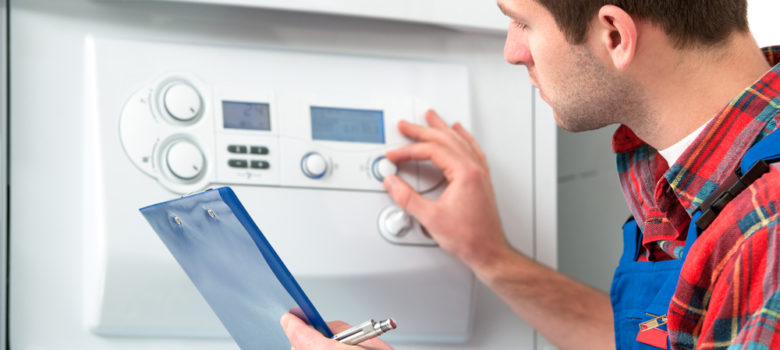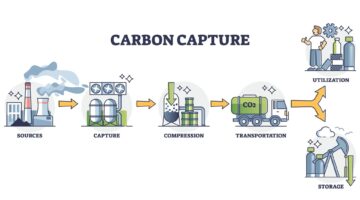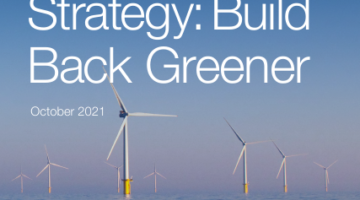
What exactly are they banning?
The new standards set forth by Philip Hammond will bring an end to the installation of gas boilers in any new build domestic properties from 2025. The ban on gas boilers is only for new builds, so replacing the central heating system in your Victorian townhouse or 1920’s semi will still be perfectly possible. It’s just that the government wants our new homes to be leading the way in terms of energy efficiency.
It’s not just gas boilers either, gas hobs are on the hit list too. The plan is essential to prevent any new homes from being hooked up to the gas grid at all.
Why are gas boilers being banned?
It’s a policy designed to tackle climate change, something that we’ve been steadily but slowly working on for a long time now. The UK has a target to reduce carbon emissions by 80% by 2050 (vs 1990 levels), which is a big goal. Policies like the ULEZ and higher investment in renewable energy are one way, but our reliance on gas and fossil fuels within the home is still contributing massively to our national emissions.
It’s come to the forefront this year owing to large numbers of students and young people staging national protests in an attempt to get climate change issues prioritised by the government.
How will we heat our new homes without gas?
The proposal outlines that instead of gas boilers, new homes will operate on heat pumps and “world-leading” insulation standards. Again, any practical information about these insulation standards is woefully absent, but heat pumps are a well-established form of heating. More and more new build properties are installing heat pumps anyway, as the cost of putting one in as part of a new project is far less than retrofitting.
Despite this, the viability of heat pumps as a fixture in every new home in the UK is one that we’re a little dubious about. While ground source heat pumps are great, they take a huge amount of space and labour to fit. Meanwhile, air source heat pumps have big issues with fluctuating seasonal efficiency. If your heating system won’t work well in the winter, is it really a heating system you want?
The average age of first-time buyers in the UK has risen to 33 over recent years and the housing market is struggling to keep up with demand. With this in mind, it’s easy to see why enforcing the expensive heat pump alternative to gas boilers is causing controversy.
Will gas boilers really be banned by 2025?
The policy was set out by a very unstable government at one of the most turbulent times in recent political history. It was undoubtedly the result of pressure from protesting young people across the country. It could easily be changed or reversed by future governments unwilling to invest the money and infrastructure necessary to ban gas boilers and fossil fuels from UK homes.
Think we missed something? Do you have a different opinion?
Comment below to get your voice heard…












How can Philip Hammond expect us all to afford heat pumps when he’d f****ng the economy so royally with Brexit?!
What about the efficiency of CHP Gas boilers? Even better what about ‘new-builds’ combining these communally with heat pumps? The Gas distribution network in the UK is almost unique so Hammond could be guilty of listening too much to American ears. Gas distribution is efficient while losses in distributing electricity are VERY HIGH. The gas distribution network has shown itself to be capable of flexing to different type of inputs (e.g. Biomethane ) and the step change to Hydrogen may be less disruptive than when we changed from Town Gas to ‘North Sea Gas’….. But an industry that sees itself being phased out by regulation on new builds will not be able to invest.
Hydrogen is a new ball game, the molecules are tiny compared with natural gas so the exiting pipework and joints will leak a lot more.
Atoms not molecules! Hydrogen is one atom… it’s an element.
“Tackle climate change” LOL! Take a look at this graph:
https://ibb.co/tKhzV0M
yep its a graph alright. Parts per million measurements are small but not irrelevant just because they are small.
If i were giving your child a drink that was 280 ppm of hydrochloric acid, i doubt you would say that it’s OK to increase that to 800 ppm ?
If a combi breaks down there is no back-up supply of hot water, unlike a conventional boiler, which has the hot water cylinder.
which can be heated with solar PV via the immersion heater..!!
True Ian but a combi only heats the water you are using, not a whole tankful that you may only use a little of before letting it go cold only to be reheated later. I have had combi boilers for the last 30+ years (2 for 15 years each, now on my 3rd) and yes its inconvenient when they fail but so is any appliance. I have gained space where once a tank stood and have found the boilers reliable. I would not go back to having tanks etc.
I’ve seen very little about existing homes with existing boilers. Presumably installing a replacement gas boiler will be banned? I assume there are no plans to rip out existing boilers?
with all properties linked to individual and extensive underground networks, what happens when the heat extraction rate exceeds the heat input to the underground ‘heat well’? cooling things down results in contraction- contraction in ground mass risks undermining foundations resulting in structural subsidence. even the fracking industry recognised that extracting gas mass from underground would result in surface subsidence and may affect surface structures. the coal authority insures property owners in old mineral mining areas against subsidence from past mining activity and does so in perpetuity. who will be responsible for the installation of ground heat pumps?
my MP has a copy of this contact